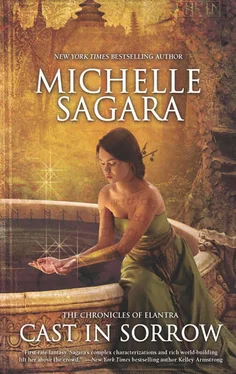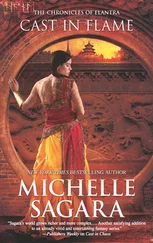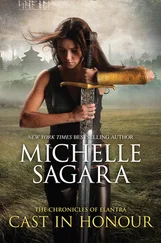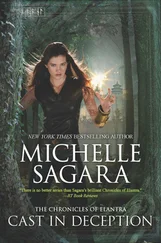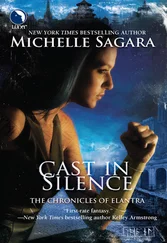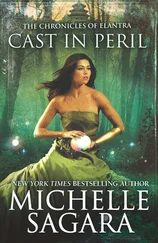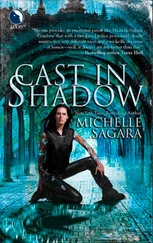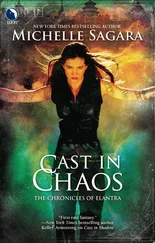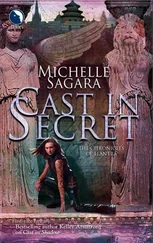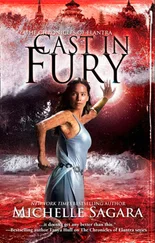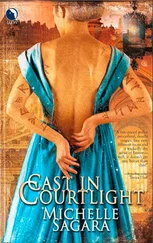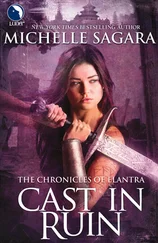Maybe nothing. Maybe the eleven would vanish and the telling would end and Teela would be Teela and safe. She could stay away from the West March. She could refuse to come back here. She could remain in Elantra, with the Hawks, in the shadow of the High Halls.
But she’d done all that. She’d done all that, and in the end, this is where she was trapped. Nothing had changed, for Teela. Maybe nothing could.
Teela said that she had tried, when she had been chosen as harmoniste. She hadn’t told Kaylin what she’d attempted. But Kaylin was certain that the lost were involved, somehow. Teela had known that they weren’t dead because she knew their names; they were part of her. She was part of them.
She had never offered Kaylin the same friendship or the same opportunity.
The creature roared. His eyes were now half the size of Kaylin’s body, and it took her a moment to realize that while he wasn’t translucent she was seeing past him anyway, which should have been impossible. Just what was she seeing?
She lifted her hand, opened her palm; she turned it out, toward the eleven who now waited. The only person present who didn’t turn to look at her was Teela. Teela had eyes only for her mother. She knelt in front of the dying woman. Even as a child, she’d known death when confronted with it.
So had Kaylin.
But this death was eternal, it was endless. This was the death that Teela saw every time she thought about her mother. It was this clear for her, this real, this solid. Everything else that had happened surrounding the death was part of it, wed to it, tied to it.
But...Mandoran’s name was not a name, not quite. It was the slender remnant of something that seemed so thin it would no longer support life. It held form, but not a substance that could return to, or come from, the Lake of Life. The marks on Kaylin’s arms were a brilliant, brilliant white; they burned.
She was used to this. It was a familiar enough pain that it was almost a comfort. It didn’t involve helplessness; it didn’t involve cowardice. It wasn’t about death and the endless silence that followed it. It was just—heat. A little like burning. But it was a pain that sometimes conferred power.
Today, she took it in both hands. She understood what the name she had saved lacked, even if she could never put it into words. The thought made her smile because putting power into words was exactly what she intended to do. It was, she realized, like healing. Very like healing. The name knew its exact form and shape; it was injured, yes, but it retained enough of itself that she could press it between her palms and feel what it now lacked.
She began to heal it, palms pressed flat against each other. As she did, her palms warmed; the heat from the name was entirely unlike the heat that permeated the rest of her skin. The creature’s great eyes—and it seemed to be all eyes, now—looked at her hands with interest. She tightened her grip. No. This is not for you.
He roared, but she’d pretty much had enough; she roared back.
Around them, history passed in streams; he had momentarily forgotten to, oh, eat them. Kaylin, on the other hand, had forgotten to catch them and bind them. But this was what her life was like: moments of intense focus, and moments of reaction. It had a beat and a rhythm that she both despised and accepted.
Hands cupped around Mandoran’s name, she released it. And it hung in the air, emerging from the flat of her palm in a pale, pale gold that had dimension. It wasn’t large, or at least it didn’t start out that way; it couldn’t have, confined to her palm. But she held the creature back, somehow, and she watched as it drifted, at last, into the green.
The other ten had appeared on their own, first as ghostly images of themselves—as real as the glass statues in the Hallionne’s nightmares. But they had taken on form and substance and color, becoming as real as Teela while Kaylin watched. Mandoran did not do that. The name, his name, drifted toward them, as if it were part of an ancient tale, rendered in dragon voice.
They saw his name. Their eyes took on the gold of the name itself. They were silent, arrested; even Teela turned her head to see what had caught their attention, although no one even attempted to speak. Her eyes widened, as well, becoming, in that instant, as gold as the eyes of the people she had trusted and loved so much she had gifted them with knowledge of her name.
Mandoran coalesced around his name as Teela rose. She stumbled. She stumbled and she opened her lips on a name that Kaylin couldn’t hear, but nonetheless knew. And then she looked at Kaylin.
At Kaylin, who was standing beneath a tree, the long skirts of the dress she’d worn for weeks now seeping—literally seeping—into the ground beneath her feet. Teela’s eyes went from gold to green to blue in such rapid succession they seemed to be all of these colors, and none of them. And then she turned back to her mother, but this time, she ran. The stiff distance, the immobility of grief and knowledge, seemed to have deserted her entirely.
Or maybe, Kaylin thought, it was Mandoran’s presence. He was the twelfth, here. They were complete. She could be the Teela she’d been the day her mother had tried to rescue her daughter. She could leave centuries of experience and wariness behind. She caught her mother in her arms.
And this time, Kaylin thought, there was no father, no High Court. Maybe this was a better story.
The creature’s eyes were now as tall as Kaylin, and in them, she could see a stream of words, of language, that was in all ways too complicated, too big, too other for her. True Words sometimes made her feel small and insignificant, but not in the same way. She heard Nightshade’s words, and she gathered them, but even as she did, she looked at the stories held in the eyes of something so large it might have devoured whole worlds—for she couldn’t see a body at all; she might have been an insect standing on the bridge of a nose so vast she couldn’t conceive of it as anything but land and sky.
On the day the twelve had come to the green it had been sunny. Clear. The trees had whispered and the Barrani had heard their ancient voices and considered themselves blessed. But it wasn’t a blessing; it was a warning. Not a threat—there was no menace in it, but there was sorrow. Grief. Loss.
On the day that the green had chosen to speak to the gathered and expectant members of the High Court, it had not spoken of power. She understood that it had never knowingly spoken of power. Instead, it spoke of loss. It spoke with the voice of Alsanis because it heard what Alsanis did not say; it struggled to understand what it heard. It spoke with the voice of Orbaranne, and the voice of Bertolle; it spoke with the voice of Kariastos. These were part of the green and yet separate from it; they heard the thoughts and the will of green and they interpreted it for those who came to seek their shelter.
It spoke of their weeping. It spoke of their pain. It spoke of the need they denied. They had made their choice. They had chosen one desire over another. They had locked themselves into the existence of the Hallionne, and they had done so gladly. But the sorrow had grown in their voices, and the joy of making the right decision—if there was ever any such thing—was only barely enough to sustain them. They chose to sleep.
Sleeping, they controlled far less of their voices; when they dreamed, they were closest to the green. And so the green heard. It heard, but it didn’t understand.
On that single day, when all such speech, no matter how difficult, was allowed, the green spoke to the Barrani of the West March because the Barrani might understand what the green itself did not: loneliness. Abandonment. Grief. Love.
Читать дальше
Конец ознакомительного отрывка
Купить книгу
